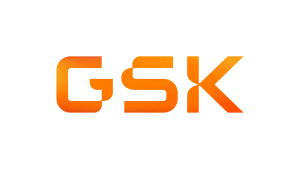GSK’s Shingles Vaccine Captures US Market

Glaxo SmithKline’s (GSK) new shingles (herpes zoster) vaccine Shingrix, launched in the US in autumn 2017, is said to be on track to conquer the US market, and it hasn’t even been launched yet in Europe.
Up to March 2018, Shingrix had garnered 99% of its market in the US – up to now monopolized by Merck & Co.’s older Zostavax vaccine – CEO Emma Walmsley said at the British drugmaker’s Q1 2018 earnings presentation.
Figures for this year’s first quarter show Shingrix sales of £110 million, which the trade journal Fierce Pharma said was nearly triple analyst estimates of £40 million. For the full year, Glaxo said it expects Shingrix sales to total £440 million.
The vaccine’s stellar performance is chalked up in part to the US Centers for Disease Control and Prevention (CDC), which recommended the GSK product over Zostavax. Shingrix is also said to have profited from the CDC’s extending its recommendation to get vaccinated to adults aged 50 and older.
In phase 3 clinical trials, the two-dose Shingrix was shown to be 97% effective in the category age 50 and older. According to the CDC, the one-dose Zostavax can reduce shingles by 51%. Deutsche Bank analysts quoted by Fierce Pharma cautioned, however, that the two-dose schedule might hamper sales.
At the Q1 presentation, Luke Miels, GSK’s president of global pharmaceuticals, said 90% of patients have access to Shingrix, both through Medicare – the US health program for people over 65 – as well as through commercial channels.
GSK recently signed an agreement with the CVS national pharmacy chain to carry Shingrix. CVS is offering the vaccine at nearly 10,000 of its pharmacies around the country.
The drugmaker based in Brenton, Middlesex, enhanced its presence in the vaccines market segment in 2015 through an asset swap with Switzerland’s Novartis. Its vaccine sales edged past rivals Merck & Co. Sanofi and Pfizer in 2017 but – apart from Shingrix – slumped in the 2018 first quarter. Reports said the setback was due in part to a shortage of the company’s Menveo hepatitis B vaccine in some markets.



















